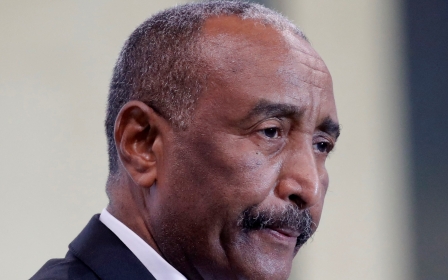Egypt set to extend security powers of president and army

The security powers of Egyptian President Abdel Fattah el-Sisi and the country’s army are set to be significantly increased after new amendments to the "national terrorism law" were approved by parliament.
The changes come less than a week after Sisi announced the lifting of a four-year state of emergency.
The amendments passed on Sunday give the president permission to take “measures necessary to preserve security and public order”, including imposing curfews.
The changes will now go to Sisi for ratification, seen by analysts as merely a formality.
Sisi had declared the state of emergency in April 2017 following the bombings of two Coptic churches that killed dozens of Christians.
Prior to its lifting on 25 October, it had been renewed every three months despite article 154 of the constitution, which limits a state of emergency to three months, renewable once.
Amnesty International and Human Rights Watch both welcomed the decision to lift the state of emergency but called it “insufficient” if people sent to trial because of it were not released as well.
However, Article 19 of the law that governs the state of emergency provisions stipulates that ongoing trials will continue even after they have been lifted.
“Since the July 2013 military coup, the government has issued dozens of laws that need to be amended or removed,” said Amr Magdi, senior Middle East and North Africa researcher at HRW.
“Otherwise, lifting the state of emergency will improve very little, if anything.”
'Human rights strategy'
Under Sunday's amendments the army and police will have permanent responsibility for guarding public infrastructure, effectively handing them control of facilities including pipelines, power stations and railway lines, the New York Times reported.
Those trespassing on or damaging such infrastructure would stand trial in army courts.
A further amendment approved by parliament on Monday would make research on the army - including both current and former members - without written government consent, punishable by a fine of up to 50,000 Egyptian pounds ($3,200).
Sisi, a former defence minister, became president in 2014 after a military coup that toppled his democratically elected predecessor Mohamed Morsi a year earlier.
Rights groups have accused his government of jailing tens of thousands of peaceful critics under the pretext of fighting terrorism.
The president, however, denied in September that the country had any political prisoners, adding: “There are no forms of human rights violations in Egypt.”
In the same month, he declared in a speech that his government had launched a "human rights strategy" that does not represent the demands of the 2011 revolution, the pro-democracy uprising that he described as “an announcement of the death of the Egyptian state”.
Middle East Eye delivers independent and unrivalled coverage and analysis of the Middle East, North Africa and beyond. To learn more about republishing this content and the associated fees, please fill out this form. More about MEE can be found here.






